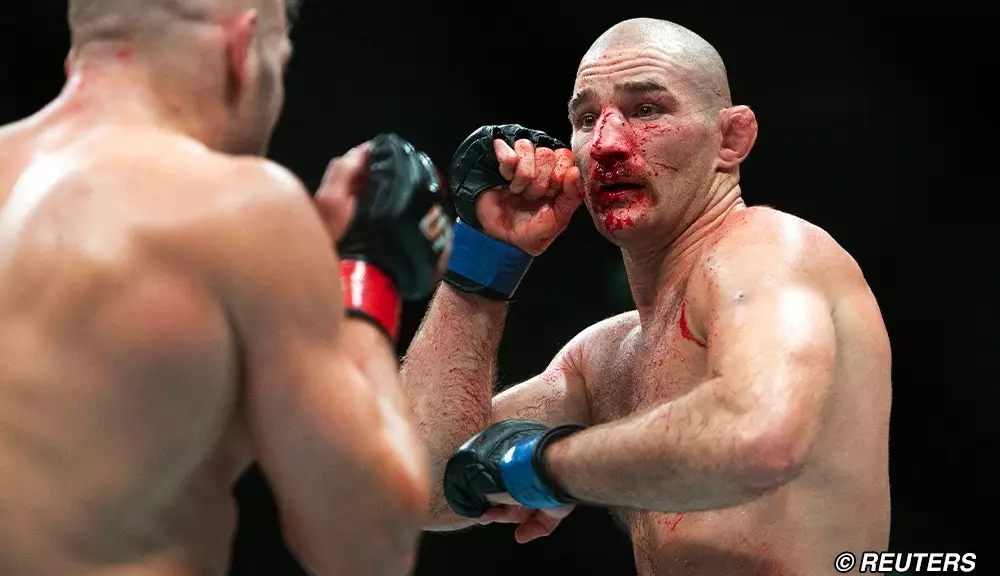In the realm of competitive sports, particularly in mixed martial arts (MMA), the divergence between bravado and performance can be stark. This reality was exemplified at UFC 312, where Sean Strickland faced off against Dricus Du Plessis for the middleweight title. While Strickland’s pre-fight declarations echoed with the promise of an all-out war, his performance belied those claims, prompting criticism from former champion Luke Rockhold. The essence of Strickland’s lackluster showing under such fierce expectations raises fundamental questions about authenticity and the integrity of athletes’ personas in this high-stakes environment.
In a contest that unfolded within the Qudos Bank Arena in Sydney, Strickland suffered a decisive defeat, marked by a dominant decision against Du Plessis. Despite his vocal commitment to engage in a stand-up war, Strickland’s actions in the octagon painted a different picture— one of hesitance rather than ferocity. Rockhold’s sharp critique highlights the importance of not merely talking a big game, but also delivering when it matters most. The contrast between Strickland’s bravado and his retreat upon sustaining an injury—specifically a break to his nose—fuels a narrative of unmet expectations and diminished fighting spirit.
When Strickland questioned Du Plessis to a stand-up bout, he ignited a firestorm of anticipation among fans, who expected a duel driven by passion and resilience. However, Rockhold’s remarks about Strickland’s resistance to pain and his apparent prioritization of personal welfare over championship glory shed light on potential cracks in Strickland’s mental armor. This moment of vulnerability, particularly during a championship bout, can lead to questions about a fighter’s grit and tenacity. Can one truly aspire to be a champion while exhibiting reticence in the face of adversity? Rockhold’s assertions suggest that champions should embody an unyielding spirit, driven by passion and the sheer will to fight until the bitter end.
Rockhold’s disdain for what he perceives as Strickland’s inauthenticity starkly illustrates a broader issue in MMA: the performance of persona versus actual performance in the octagon. Strickland’s tough-guy act might draw fans, but as Saturday’s fight proved, charisma alone is insufficient for success at the highest level. Rockhold’s comments provoke a deeper analysis of the fighters’ identities within the sport—how they choose to project themselves and how that relates to their outcomes in competitive settings. This duality may not only shape their careers but can also influence fan loyalty and media perceptions.
Going forward, Strickland must grapple with the ramifications of his UFC 312 performance and the critical scrutiny that follows. While Rockhold’s commentary may stem from personal resentment and the frustration of unfulfilled potential in a previously scheduled bout against Strickland, it also underscores an enduring truth in prize fighting: actions speak louder than words. To genuinely earn the title of champion, a fighter must demonstrate not only skill but also unrelenting resolve, especially when the stakes are highest. Whether Strickland can reconcile these aspects of his persona with his performance remains to be seen, but one thing is clear— the world of MMA demands authenticity in both word and action.

